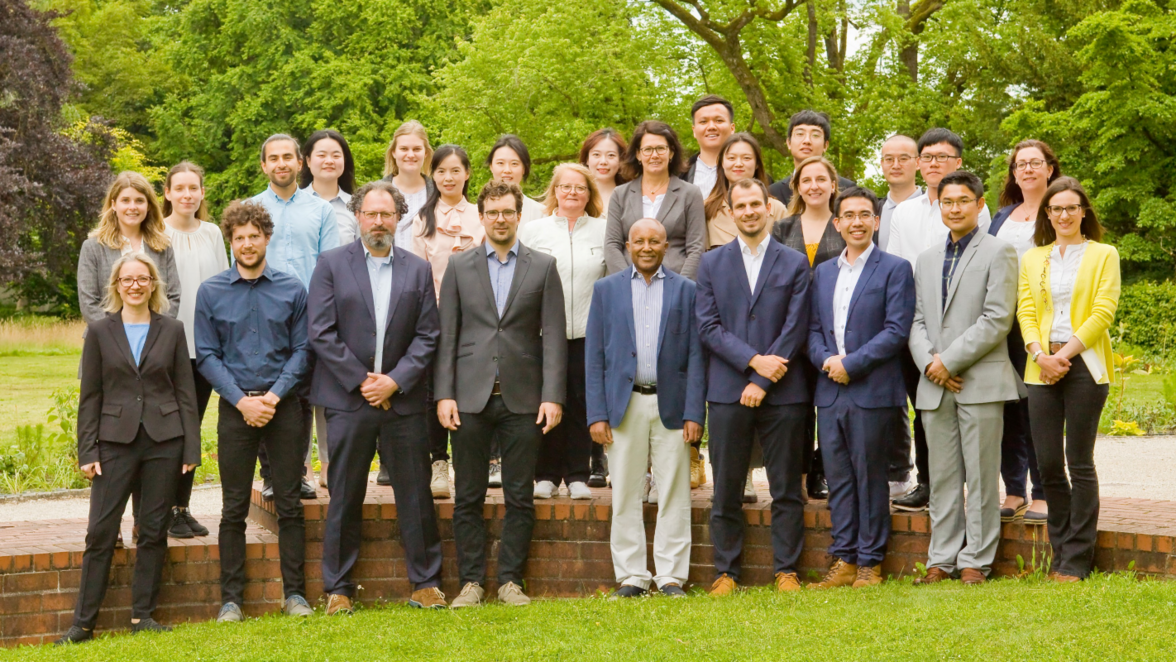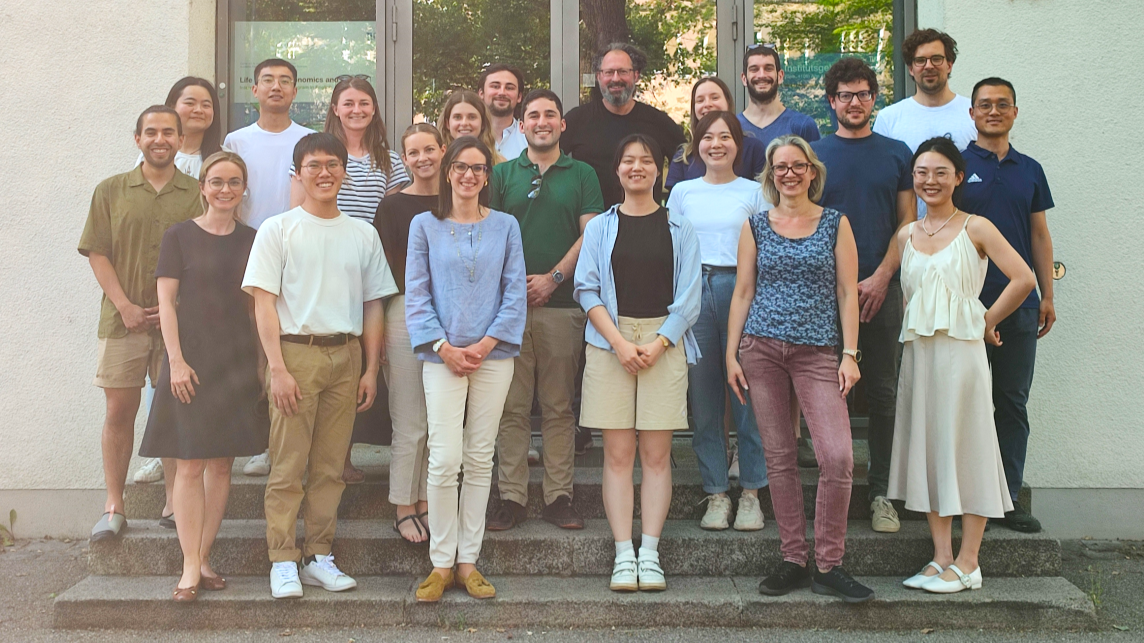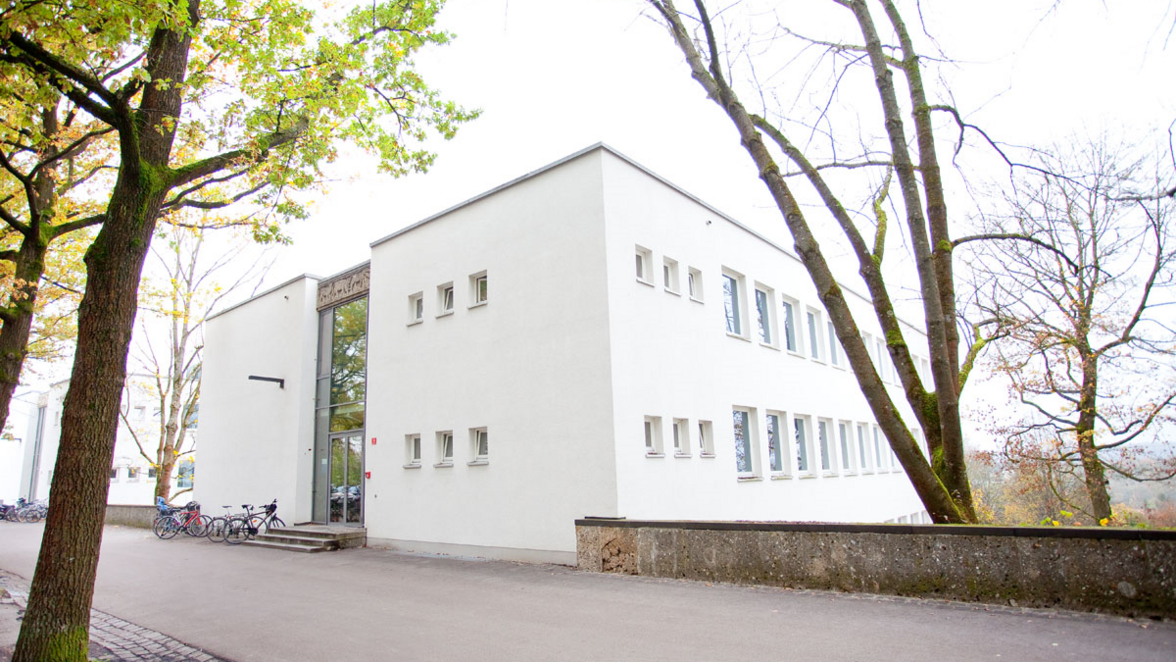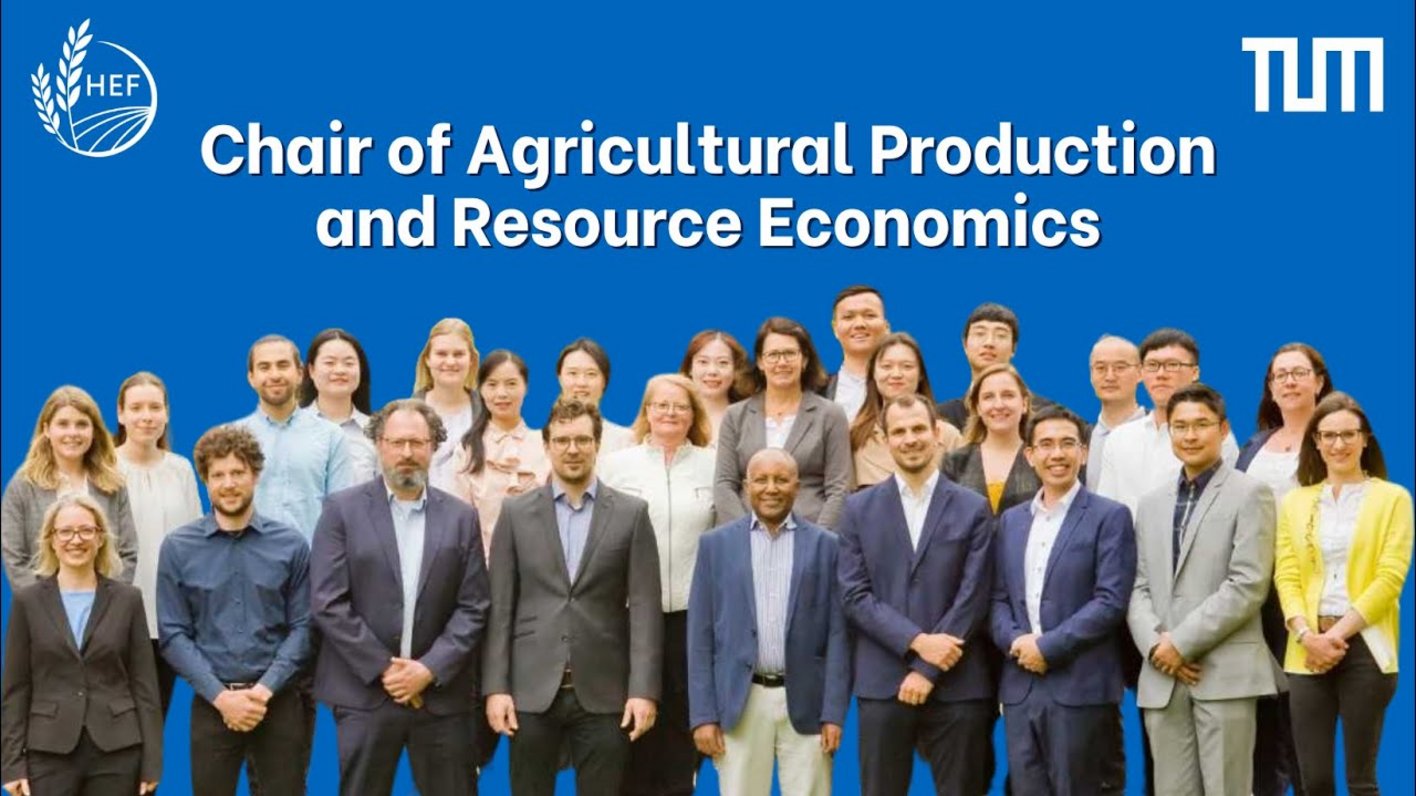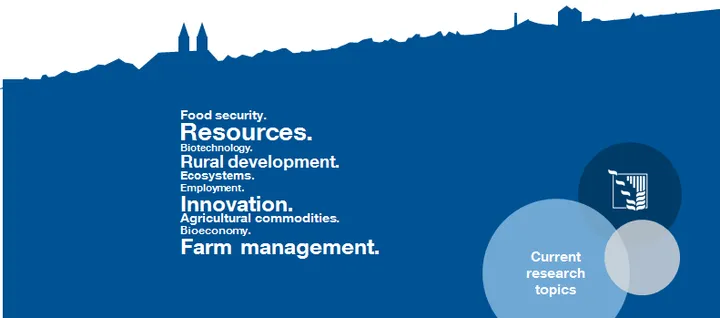News
Expanding Research Frontiers: PuR Chair’s First Outreach Mission to Cambodia 🌾
From May 20–23, 2025, the Chair of Agricultural Production and Resource Economics (PuR) of the Technical University of Munich (TUM) completed its first outreach mission to Cambodia More…
Strengthening Ties and Exploring New Horizons: TUM Delegation Completes Successful Outreach Mission in Vietnam🌾
From March 23 to April 2, 2025, a delegation from the Chair of Agricultural Production and Resource Economics at the Technical University of Munich (TUM) conducted a fact-finding outreach mission across Vietnam. More…
Strengthening International Ties: PuR Delegation Explores Possibilities for Research Collaboration in South Africa
The Chair of Agricultural Production and Resource Economics (PuR) maintains a strong international focus. As part of ongoing efforts to expand global collaboration, Prof. Johannes Sauer and Carlos Böke Pascual recently traveled to South Africa to strengthen partnerships with leading universities and research institutes. More...
3rd Weihenstephan Future Forum on Agricultural Policy - MO 27.01.2025, 5 pm, Campus Weihenstephan (lecture room 17 Liesel-Beckmann-Str. 1, EG)
Subsidy-free agriculture in global markets - conceivable, feasible, desirable?
The European Union's Multiannual Financial Framework provides for agricultural spending of around 379 billion euros for the period 2021-2027, a sum that corresponds to 31% of the total EU budget. No other sector receives similarly high subsidies. And not just in Europe. At the same time, according to leading scientists, modern agriculture is primarily responsible for numerous environmental burdens and the starting point for intensive debates on animal welfare. So are we subsidizing it wrong? More…
Current Projects
INSPIRE - Integrating High-Resolution Sensors and AI Decision Tools for Enhancing Agricultural Efficiency
The main objective of INSPIRE is to improve nutrient use efficiency in agriculture by innovative technology capable of measuring nutrient contents in soils and incorporating this data into state-of-the-art decision support tools for farmers. This will be enabled by the development and deployment of novel nutrient sensors, which can be incorporated in agricultural soils and produce high-resolution data…more
WATERGRID - Nature Based Smart Water Grids for Integrated water and drought management
WATERGRID’s objective is to develop and demonstrate the Smart Water Grid (SWG) concept for more climate resilient water management, particularly targeting extreme drought, but framed within Integrated Catchment Management, addressing the whole catchment in a holistic approach.
The resource efficiency of Nature Based Solutions (NBS) previously established in eight sites will be analysed alongside the academic literature, forming an Evidence portfolio. Of these eight sites, five will be…more
SCALARE - SCaling Agroforestry by living LAbs for Resilient Mediterranean agro-Ecosystems
SCALARE aims at co-developing a comprehensive innovation ecosystem for advancing agroforestry land management systems in the Mediterranean. The framework will enable holistic co-assessment with relevant stakeholders of the opportunities offered by innovative agroforestry systems (e.g., diversified food production, adaptation and resilience, carbon sequestration, enhanced soil productivity, and improved water retention), while co-identifying…more
AGRO-WELL: Agricultural Robotics and Augmented Reality for Workplace Enhancement and Labor Linkage
The AGRO-WELL project is addressing the challenging and hazardous conditions faced by workers in the agricultural sector, which is marked by high accident rates and health issues due to physical labor and repetitive tasks. These challenges, coupled with emerging issues like digitalization, technological changes, environmental goals, and the impacts of climate change, are increasing the demands on farmers and farm workers, particularly in terms of occupational safety and health (OSH). AGRO-WELL adopts an interdisciplinary approach, bringing together experts from various OSH-related fields... more
INCiTiS-FOOD: Integrated and circular technologies for sustainable city region food systems in Africa
INCiTiS-FOOD aims to improve food and nutrition security in African city regions and reduce the food-system-related environmental footprint while contributing to circularity. Furthermore, the project will empower communities by opening up opportunities for them in agri-food supply and value chains, and by achieving environmental justice through transformative food policies. This will be achieved through... more
Net-CSA Bio: Network on Climate-Smart agriculture: Integrating biodiversity and ecosystem conservation
The “Network on Climate-Smart agriculture: Integrating biodiversity and ecosystem conservation (Net-CSA bio)” aims at fostering cooperation in research and teaching between TUM-PuR and scientists from Colombian universities and research institutes. The project is funded by the Federal Ministry of Education and Research and focuses on three main pillars: scientific excellence, capacity building, and network enhancement. The scientific pillar focuses on... more
NOVASOIL: Innovative business models for soil health
The general objective of the NOVASOIL project is to demonstrate the benefits of investing in soil health for society and the environment. Innovations to improve soil health will be promoted by establishing a network of experts, the experimental design and testing of effective and efficient cooperation models, and the development of contractual frameworks that support the implementation of the models by various actors. The expected key outcome of the project is a... more
RETOUCH Nexus - Resilient water governance under climate change within the WEFE Nexus
With increased water scarcity due to anthropocentric and natural causes, the trade-offs and synergies intrinsic to efficiently allocate water resources to various competing uses have become more polarized. Realizing the importance of an integrated approach in water governance, the RETOUCH Nexus project introduces and promotes the Water-Energy-Food-Ecosystems (WEFE) Nexus as a multi-level and cross-sectoral approach that advocates the EU water economy and, in addition, relies on ecological and social considerations. The overall objective of RETOUCH Nexus is... more
GRASSWORKS - What works and why in grassland restoration in Germany? A multi-region social-ecological assessment and pilot implementation of successful approaches.
GRASSWORKS aims to contribute to the comprehensive and global transformation to reversing species and habitat loss and focus on a greater appreciation of grassland biodiversity and its many ecosystem functions and services. The project focuses on three model regions in North, Central and South Germany, over three ree regions that vary in their economic, social-ecological and socioeconomic contextual conditions. The project is based on the hypothesis that biodiversity restoration success depends on the extent to which projects address the diverse levels of ecological complexity, as well as the social engagement of diverse stakeholders. This is a... more
PONDERFUL- POND Ecosystems for Resilient FUture Landscapes in a changing climate
Ponds and “pondscapes” (networks of ponds) are crucial for biodiversity conservation and their multiple societally beneficial ecosystem services (ES) provide the means to play a crucial role in mitigating and adapting to climate change. However, ponds are largely neglected in water- and nature-related policies and there is insufficient knowledge on how to manage and restore ponds to maximize nature-based solutions (NBS) to increase resilience of ecosystems and society to climate change. The overarching objective of PONDERFUL is ... more
IPM Popillia - Integrated Pest Management of the invasive Japanese Beetle, Popillia japonica
The IPM Popillia project seeks to limit the invasion of quarantine pests such as the Japanese Beetle, a pest that was found in Europe for the first time in 2014, using sustainable and environmentally friendly control strategies. Japanese Beetles are already abundant in natural conservation areas, grasslands, forest margins, small structured, fragmented landscapes, or close to residential areas and private gardens, but slowly become a threat to agriculture... more
Current publications
Assessing performance of crop producers from Water-Energy-Food-Environment Nexus perspective: A composite indicator approach
Halytsia, O., Vrachioli, M., Sauer, J. (2024). Science of the Total Environment
Among all the economic sectors, agricultural production is characterised by intensive natural resource use and a noticeable environmental footprint. The assessment of farm performance has been receiving special attention given the increasing scarcity of natural resources and growing environmental concerns. The nexus approach is particularly useful for such types of analysis since it reflects the complex interconnections among the sectors of water, energy, food and environment (WEFE). One way to explicitly place agricultural production within the WEFE Nexus is to develop a composite indicator at the level of decision-maker – farm – that will reflect the interlinkages between agricultural production and the Nexus pillars of water, energy and environment.
Assessing the Environmental Performance of Agricultural Production Using a Parametric Approach: An Appllication for Crop Producers in Ukraine
Halytsia, O., Vrachioli, M., Nivievskyi, O., & Sauer, J. (2024). Eastern European Economics
Agriculture is characterized not only by the production of desirable outputs but also by generating environmental pressures. This article emphasizes the necessity of accounting for “bad” outputs when assessing the performance of agricultural producers. It provides a first attempt to empirically evaluate the environmental performance of crop producers in Ukraine employing farm-level panel data. Our results suggest that the average environmental efficiency for crop producers in Ukraine was 0.84 over the period 2017–2019, meaning a reasonable scope exists for farmers to improve their environmental performance and contribute to meeting carbon reduction targets, as well as help achieve a green postwar economic recovery.
What matters most in determining European farmers' participation in agri-environmental measures? A systemativ review of the quantitative literature
Canessa C., Ait-Sidhoum A., Wunder S., Sauer J. (2024). Land Use Policy
Successful implementation of Europe’s agri-environmental policies faces various obstacles, several of which are closely linked to participation. Effectively increasing adoption of agri-environmental-climate measures (AECM) requires a deeper understanding of farmers’ motives. Various case-study research has targeted ex-post studies but offers context-specific recommendations. Earlier literature reviews provide certain insights, but have not yet clarified how the evidence on adoption can be optimally applied to AECM design. We explore farmer decision-making by synthetizing results from three decades of ex-post empirical studies on AECM adoption in Europe.
